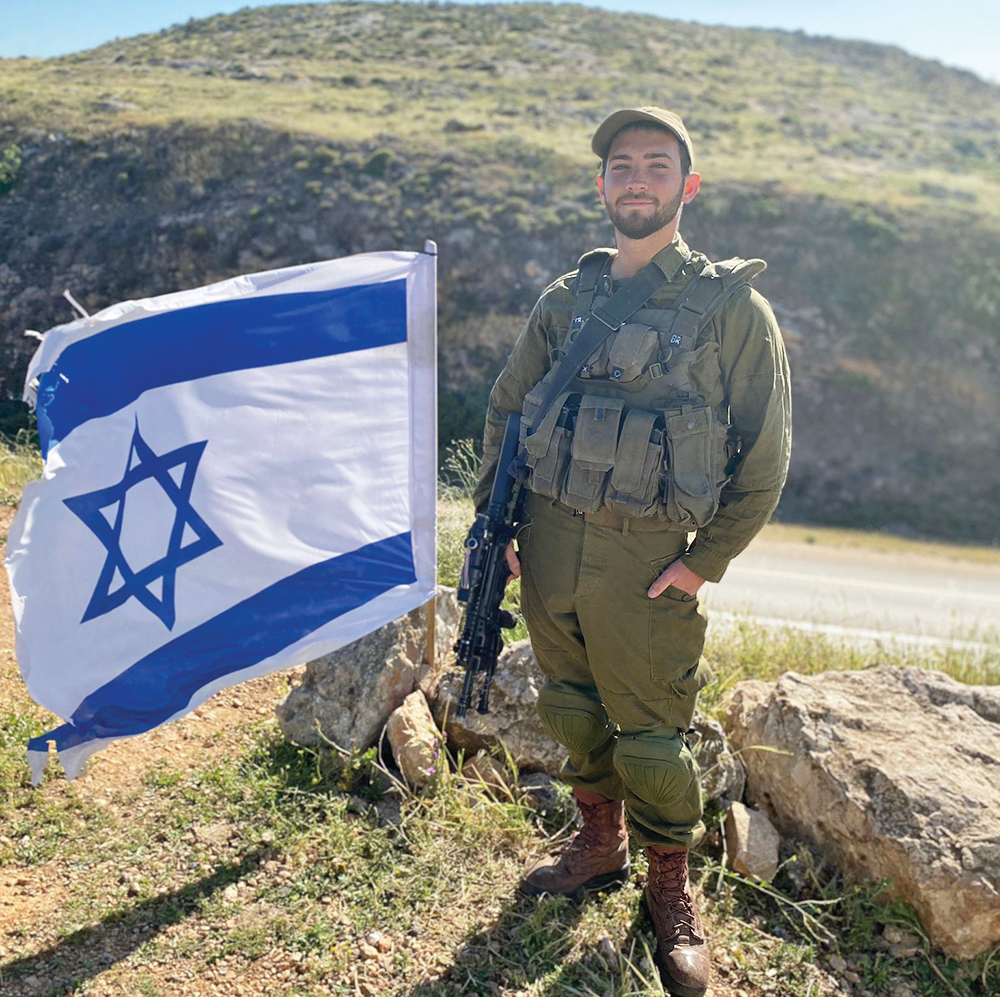Most IDF soldiers will tell you that “closing,” or staying on base for Shabbat, is one of the most unpleasant tasks while in the army. Although it’s obviously necessary, the anticipation of being away from the comfort of home, friends, working air-conditioning and sanitary food causes soldiers to naturally do anything—rational or irrational—to try to work out going home. They, inevitably, think of possible excuses to bring to their commanders and try to justify why they’re not needed that weekend. Chaos ensues when trying to perfectly move around scheduling of guard duties—like a Rummikub board—figuring out to the minute exactly how many people are needed. Some may offer to take a last-minute bus before Shabbat or try to negotiate to make up the time somehow during the week. On Shavuot, one person had to volunteer to stay and guard the base, and not one person would accept an offer of 4,000 shekels from the rest of the unit—which is more than a month’s salary—to miss a chance to return home for the chag.
As I’m slated to close every Shabbat during the Three Weeks this year while in Chevron, the pasuk most called to mind for me is הֲשִׁיבֵנוּ ה’ אֵלֶיךָ וְנָשׁוּבָה חַדֵּשׁ יָמֵינוּ כְּקֶדֶם …—“Return us to you, Hashem, and we will return; renew our days as of old.” This verse is recited aloud by all at the end of Eicha when Bnei Yisrael is in the midst of being exiled from their home, Israel, and the future is looking dark and hopeless. After Yirmiyahu describes Bnei Yisrael’s extreme suffering throughout Eicha, the book ends with Bnei Yisrael’s final plea to Hashem. They didn’t cry to—at least—be protected in exile or to have their needs met and children happy there. It was one last-minute plea for any chance to just return back home, no matter what it takes. And it’s this longing for return that should be part of what is emphasized, as we recite this verse over the Three Weeks and Tisha B’Av.
Throughout my time in the army, I’ve witnessed the beauty of home being the end goal. Our minds are always focused on it, and we won’t sacrifice anything—like the 4,000 shekels—to miss it. Things like checking flights, looking for programs and internships, and learning about aliyah benefits, constantly remind and solidify in our minds that coming back to Israel—our home—is our end goal as a nation. It demonstrates to ourselves and Hashem that if Hashem opens up a door for us to return, we will seize the opportunity and that our prayers are genuine. And, by this, we are relating to and even living Bnei Yisrael’s final plea from Eicha, that is evoked by saying the pasuk of השיבנו.
What has given me the most fulfillment along my aliyah journey is always having gratitude to Hashem for allowing me to truly live by the words and prayers we say regarding our return to Israel. By moving across the globe with the intention of authentically following the Torah and mitzvot, I can establish a sincere sense of their legitimacy and power within myself, enabling me to wholeheartedly and confidently immerse myself in their practice. But, even better, is being able to spend time with friends who share these same values. Whether they already live here or not, witnessing my friends find any “excuse” to come, to learn for college, internships or as madrichim and madrichot, shows ourselves and Hashem that we don’t see Israel as just a safe haven but as our unquestioned home—a place we love and want to be in.
As we build our futures after high school and as our personal life purposes and responsibilities start to grow, we must ensure that every step is a step in the direction back to our roots and our ultimate objective. This requires displaying to Hashem that we’re keeping our end of the deal when we exclaim, “Return us and we will return,” with not just words, but actions as well. The Gemara teaches that one who mourns over the destruction of the Beit Hamikdash will merit seeing her joy. While the Three Weeks are rightfully a time for mourning, we must not let the opportunity to see her joy pass us by during the other 49.
Brian Racer is originally from Teaneck and lives in Beit Shemesh. He was drafted to the IDF in March 2022 through Lev Lachayal and is currently serving as a sharpshooter in the 932nd Infantry Battalion in the Nachal Brigade.










